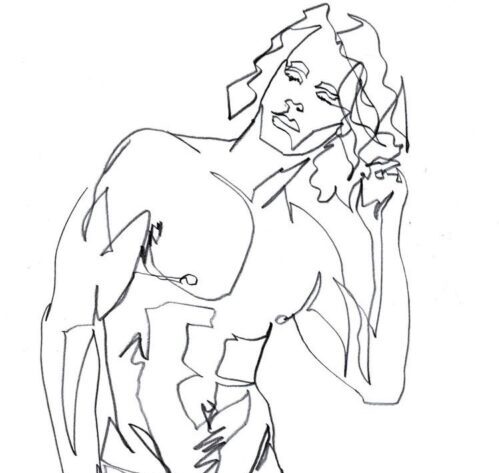
Flat belly or pot belly: How you measure poverty says a lot about how you see yourself
Written by Dr Mandy Mpatlanyane
October, 20, 2022
Poverty is generally understood as financial insufficiency to meet basic needs. However, a more holistic view of poverty has been advocated for over the last few decades.
Stats SA recently announced that ‘It is now estimated that the food poverty line, also known as, the extreme poverty line, (simply defined as the amount of money needed to afford food for daily living) is now R663. If we include food and non-food items, the upper bound poverty line sits at R1417.’ The report continues to state that ‘Since poverty is multifaceted, it can be defined in multi-dimensional terms. The way poverty is defined informs how it will then be measured. The measurement of poverty can be classified into broad categories, i.e. objective, relative, multidimensional and subjective measures.’
Subjective perceptions of poverty are considered qualitatively valid in a multi-dimensional matrix. How wealth and poverty are perceived, differs from person to person. The publication further noted that ‘perceived subjective poverty was worse with households headed by black females, younger than 35, and residing in rural areas with low education.’ I laughed when I saw this because it made sense to me. Of course, black Wakanda queens instinctively reported that they are worth more than what life has presented to them. When we place high value on ourselves, we are bound to expect more from others, our jobs and our future. We desire better lifestyles, better paying jobs, better relationships and better health. We become better able to remain unmoved by gaslighters who sell us poverty as virtue.
Subjective poverty is a very interesting concept as it speaks to self-perception, self-worth and self-esteem. It includes a consideration of one’s financial status, but it often also means more than that. It can mean people consider more than money when trying to figure out who they are, what they want, and whether they have the right to demand certain things of life or others.
If finances are in fact part of your matrix for determining poverty, it is useful to think of our financial view as a T junction – one route to the left and another to the right.
Route 1 = “passive acceptance”: accepting that you do not have the means to live a so-called ‘better life’ because of your economic status. Contrarily, accepting that you are born into wealth and are financially comfortable. This cohort of people, falling on either side of the line, choose to simply accept their economic status and take life for what it presently is. As is the case with all things, all choices have consequences. For those born into poverty and choosing to settle there, the fruits will inevitably be a continuation of the poverty cycle for generations. Likewise, those born into wealth and choose to settle passively in it, the fruit will inevitably be a permanent dependency on family wealth.
It is useful to keep in mind that the passive reliance on what is already there means your individual accomplishments and failures as a reference point are limited. Validation won’t come from what you have achieved. I’d advise you to seek validation in what you do have as a consequence of circumstance – capitalise on good relationships with family and friends, identify your skills and strengths and use those for work and/or hobby. Above all, don’t compare yourself to anyone who is not on your chosen route – it will end in tears.
Route 2 = “active acceptance”: I believe a large number of people are walking this path. This cohort is aware of their socio-economic deprivations but desire to transcend it. They strive to better their lives and will not settle, even when they are already wealthy. This path is not without its short-comings either. Very often in a Capitalist system human value is measured by your ability to contribute to the economy as a consumer who accumulates. This means those that aren’t actively or rigorously contributing to consumerism are marginalised. On the other hand, those that are hyper-consumers are told there is always more to accumulate even when they have enough.
In this instance, it is important to be self-aware and to self-preserve from over-committing to a life of “the next…” In like manner, one has to guard against chronic ingratitude or arrogance which can result in lack of genuine joy and contentment.
Some people do not have economic abundance as a criteria in their measure of what matters most in life. As such, they measure poverty on the basis of anything but financial means. Poverty then, as is the case with wealth, can to some extent be an expression of how you see yourself! Numbers and graphs can say you are poor or rich, but unless you accept and live out that denominator, unless what is measured is part of your desired goals, the numbers are insignificant. Your confidence should be based on what YOU have decided matters to you.
References: 1
1. Image – https://pin.it/2uxA44x
2. https://www.statssa.gov.za/publications/P03101/P031012022.pdf
3. https://www.statssa.gov.za/publications/03-10-25/03-10-252019.pdf
Ubusha Bami futhi yimi lo – My youth and this is me! © 20 October 2022